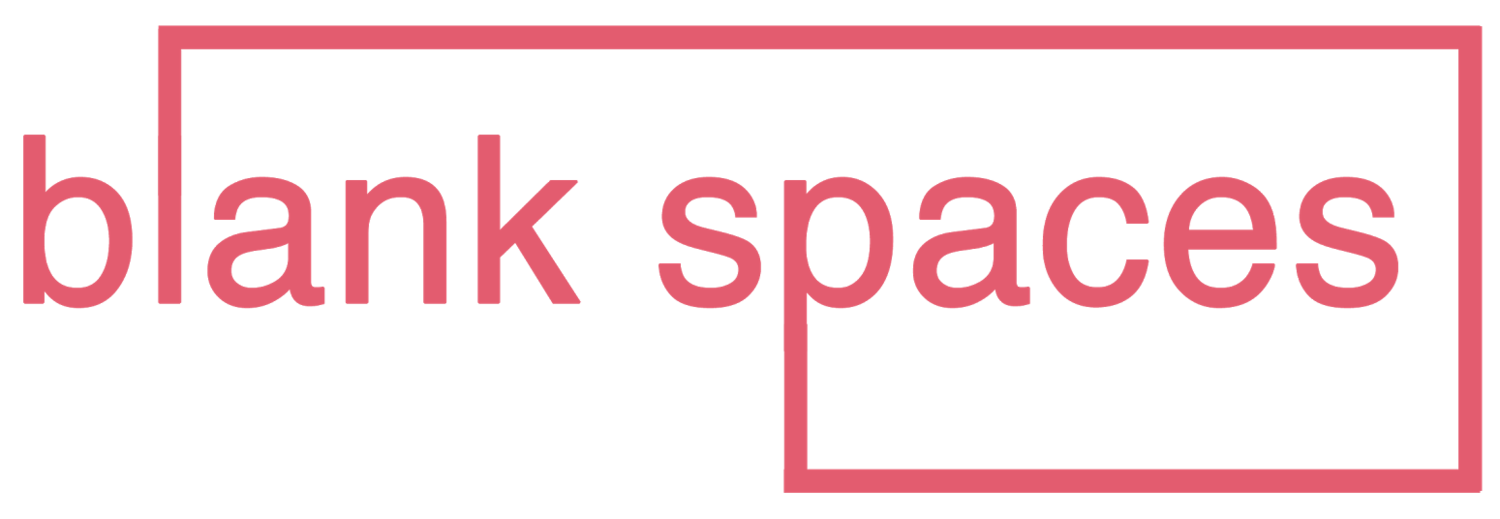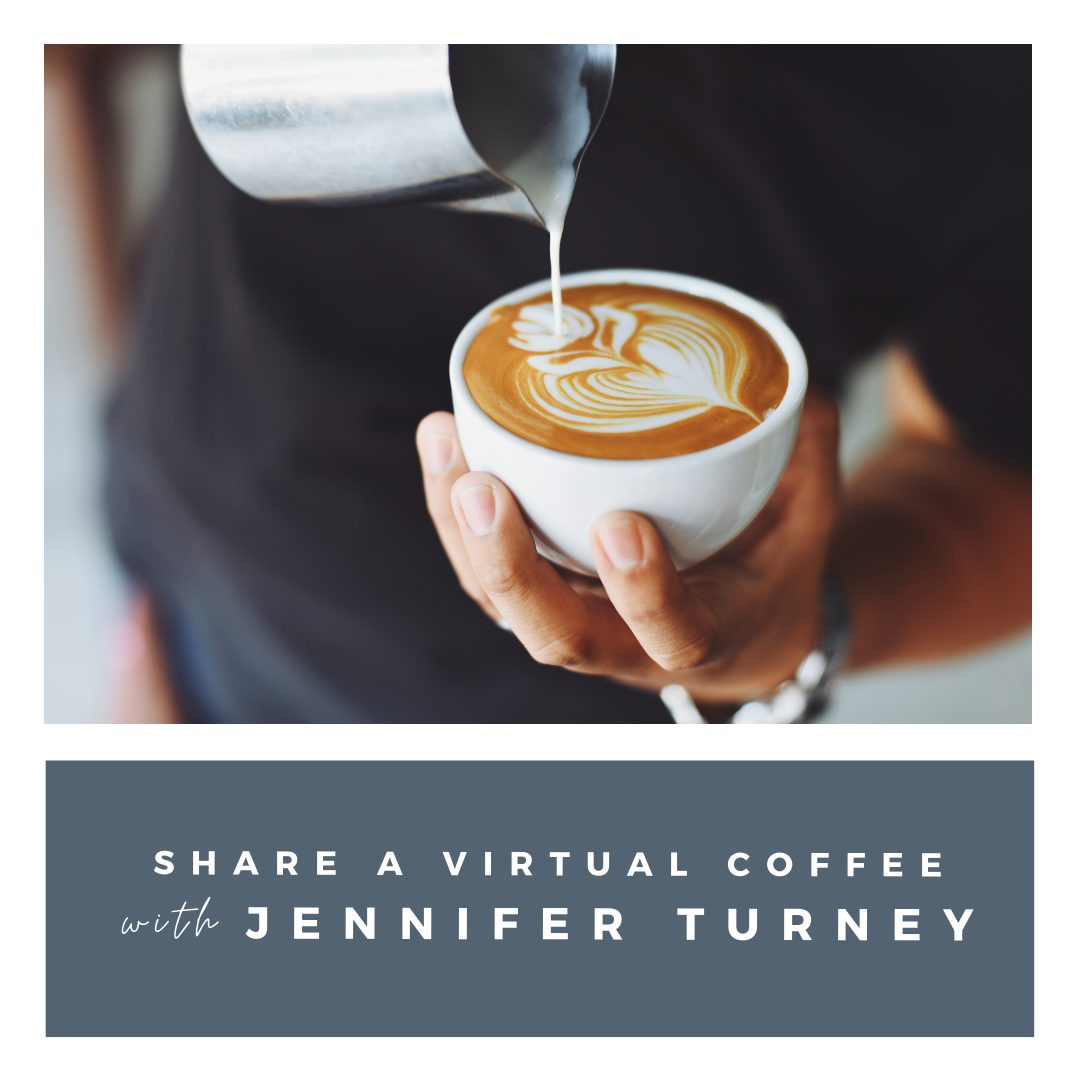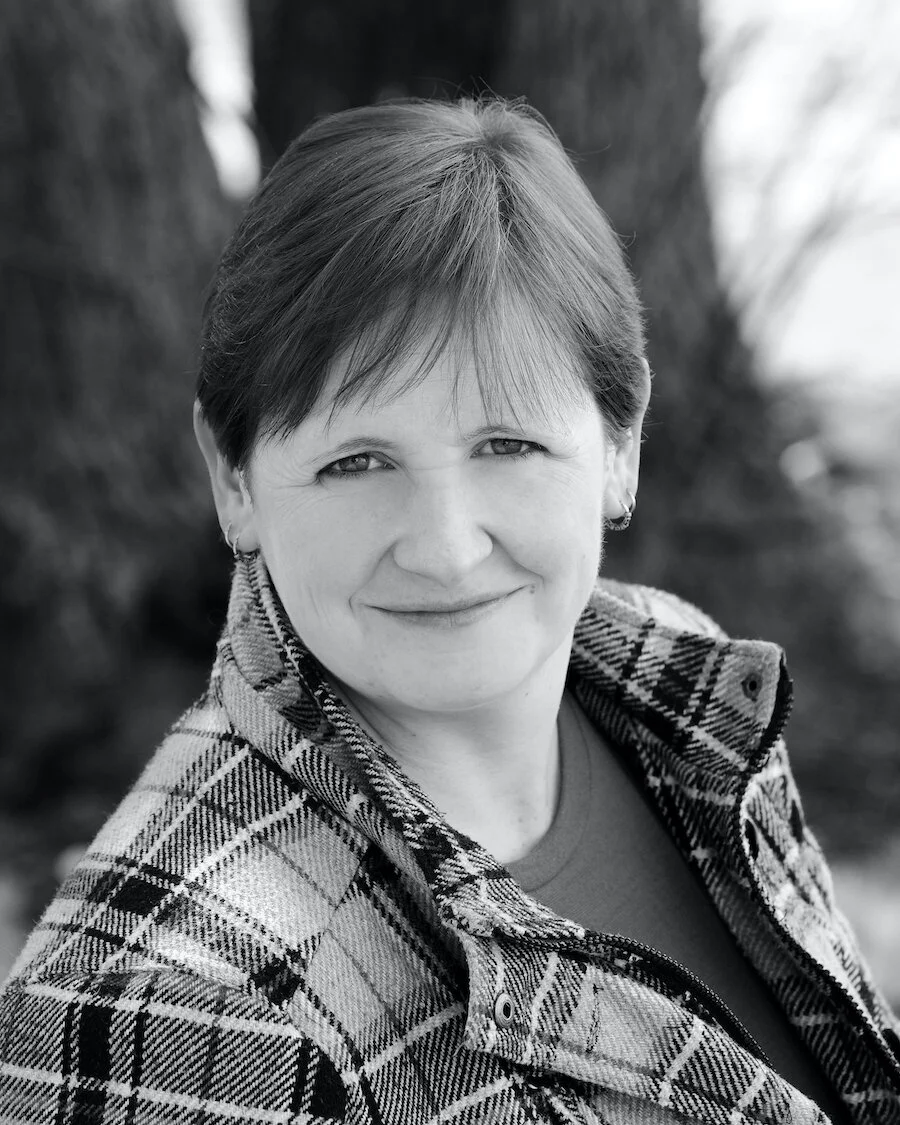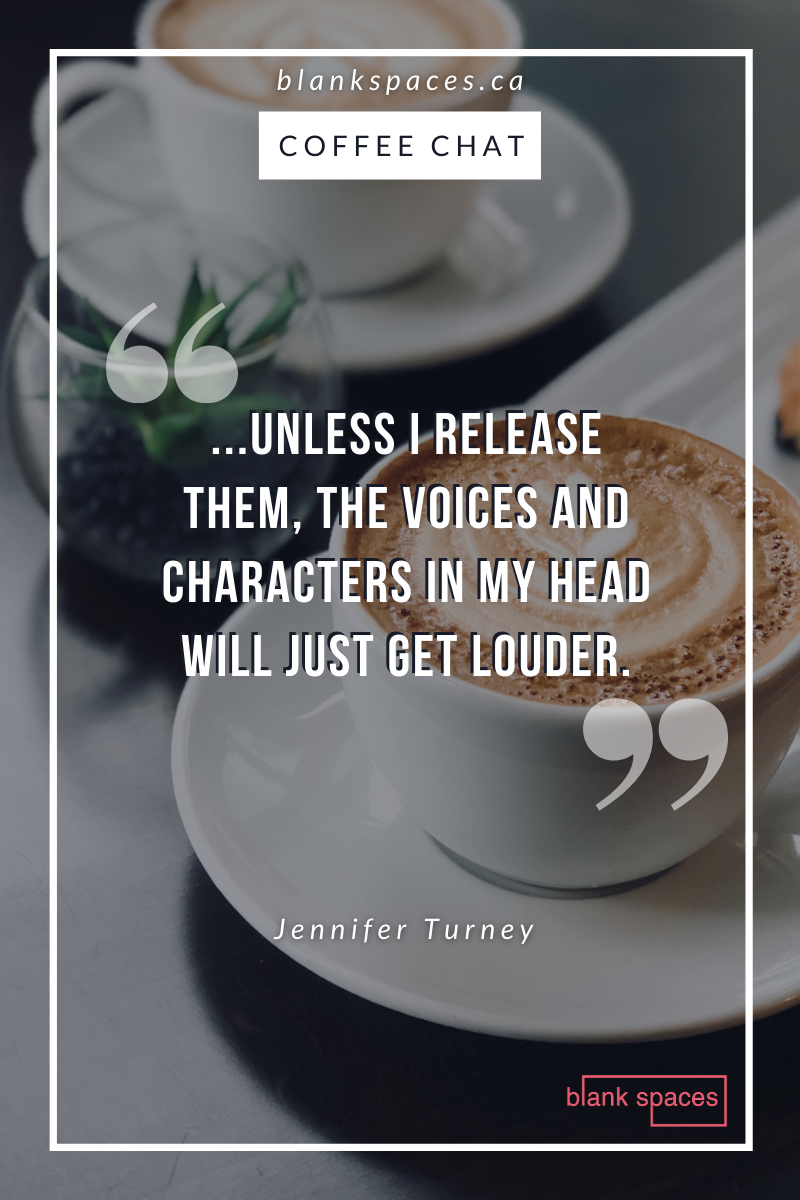Coffee Chat with Jennifer Turney
Pour yourself a nice steaming cup and settle in to get to know Jennifer Turney a little better.
Tell us a bit about yourself. Who are you? Where are you located? Do you have a day job?
I live in Huntsville, Ontario. I moved here in 2003 with my now-husband of almost 17 years. I've got 3 kids — 16, 14 and 10 — so to say it's a busy house with a lot of opinions would be putting it lightly. We have a black cat, two hamsters, and two budgies to add to the household noise. I'm a personal banking advisor by day, and a writer in between. I've also been a practitioner of Shorinji Ryu style karate for about 8 years.
How do you take your coffee? With milk. I need a kick in the morning, but not a sharp one.
What Blank Spaces issue were you first published in? Volume 3, Issue 3, March 2019.
When did you first know you wanted to write? Since Elementary School I suppose. I was always intrigued by stories, especially fantastical ones like The Princess Bride, The Neverending Story, and The Labyrinth. I could get drawn in and invested into the characters, the adventure, the worlds and thought I want to be able to do that for people.
What are you reading right now? What is it about and what keeps you coming back to the pages? I am currently reading The Tea Girl of Hummingbird Lane by Lisa See. She has this incredible ability to transport you with her words so you feel like you're right there with her characters. There is always a central female character that seems to suffer but who is always revealed to be stronger and smarter for what she goes through. Decent message to send out into the world.
What role has Blank Spaces played in your creative journey? Blank Spaces has helped me gain a lot of confidence to share my work. Whether it's published or not it's just getting written and out there. I know a lot of writers who struggle with that part and it's been a very encouraging experience.
Tell us a little about the piece Blank Spaces published and how it was received by family, friends, and the greater community? The published piece was about a framed Luna Moth that a young woman receives after a relative passes away. It's a very short piece and actually is my first shared story and publication ever - so it means a lot. I drew from a lot of personal experience; many elements of the setting and the journey that entails are like a beautiful little cross between details from young me and where I'm at now. The best part is that most of it is real, including the moth. My family identified it instantly — like how you can enhance old pictures — they felt like they'd taken a trip down memory lane.
Why is Canadian content important? There are so many talented people out there, platforms like these are wonderful opportunities for us to share and appreciate.
Where has your creative journey taken you since being published in Blank Spaces? I've actually won two writing events since then: Best Manuscript at the Muskoka Novel Marathon 2018 & 2019. I've placed in two of the Photo Prompt Contests with Blank Spaces and enjoyed the exposure with online publication. I feel like I'm settling into my voice. I've got confidence and now I've just got to get pen to paper more often.
What does your writing process look like? Sporratic at best. Though I am attempting a year-long project that 'should' see me writing at least a few lines every day. I'll take it, no matter what comes of it. At least I'm writing.
How do you invest in your writing goals? I have a year-long subscription to Masterclass so I can get in on lessons from some of the greats. I just finished the class with Neil Gaiman — very encouraging. I also try to attend local events and workshops as much as possible. One benefit of this pandemic is that opportunities have exploded with so many events going virtual.
If you could tell your young creative self anything, what would it be? I'd ask her what she's waiting for. I'd tell her to keep at it. I'd tell her not to worry so much about what people would think if they read it, just write it the way you want. And share.
Who are your writing influences and how do they motivate you? I have writer friends I've met over the years who check in regularly. Even just a little note 'Shouldn't you be writing ' sent out of the blue can be grounding.
What do you tell yourself every time it gets hard and you want to quit? I remind myself that my story isn’t out there yet and only I can write it. I also tell myself that unless I release them, the voices and characters in my head will just get louder.
Do you have any writing rituals that help the words flow? I have terrible discipline for this.
Who do you think makes a better writer: an empath or a pragmatist? Why? An empath, I think, helps you make much more fully rounded characters and dialogue because you can see what they're putting out, how it's received and what is returned in a very realistic way. In other words, you experience all sides. Granted, it makes it very hard to part with them when the time comes.
What advice do you have for writers struggling to break into the industry? Write for yourself, because you enjoy it. Get feedback and be open to constructive criticism because that's what can make you better. Find your 'people'; they get it, trust me.
What are you currently working on? Poetry at the moment, short stories always. Looking into freelancing to hopefully help build a writing income.
What should we be watching for from you? My goal this year is to be open to possibilities. To enter and submit more often to online publications and to keep plugging away. Really, I don't know where you might see me, but I do hope my persistence yields a few mentions in 2021.
If you’re a past Blank Spaces contributor and would like to be featured in a virtual coffee chat, please complete our online interview form.
Jennifer’s work can be found in one of our beautiful anthologies as well as back issues of the magazine.
Read Jennifer’s second place story ‘Sun, Spot, or Otherwise’ from the March 2019 contest.
Read her other second place story ‘The Michael’s We Knew’ from the June 2018 contest.
this post contains Amazon associate links




